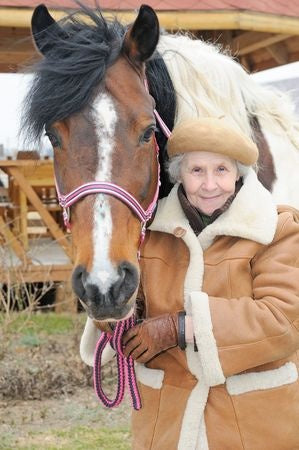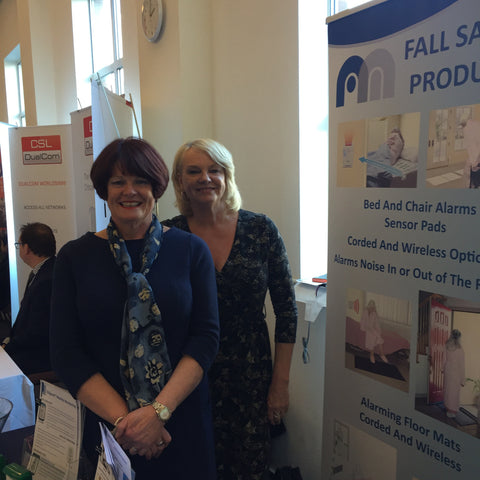Bed Alarm information and helpful posts
Keep Them Out Of Hospital By Using A Fall Safety Bed Alarm
These are very difficult times and it seems even more important to keep our elderly loved ones out of hospital and at home whenever possible. Many people are unaware that there are multiple Fall Safety products available so stop your relative falling and ending up being hospitalised for broken bones.
Bed Alarms, Chair Alarms, Fall Mats, Bedside and Door Motion Sensors, Call buttons, and more will help keep them safe, let you know they need help, and prevent falls and injury. And with our wireless products, you can have the alert with the Carer and not the patient.
There are times when a bed sensor pad and bed alarm isn't the answer....so what to use?
We talk to our customers every day, and it seems that we hear about new challenges and issues all the time, as we sit and try to problem solve with those customers to help them find the best product to care for their patient.
Sometimes, it's a nursing home looking for a bed alarm and bed sensor pad. They have someone who has decided that they WILL NOT have a bed sensor pad in their bed. They can feel it, or hear it, or sometimes just sense it, and they won't have it!
It's a tough challenge. You have to respect the patient's right to allow or not allow this product in their bed. But at the same time, they must be kept safe and free from the potential of a fall.
What we can do, is just provide the options. The customer is the one on the front line. They might have been told just to 'get a be alarm', but when faced with the upset of their patient, they aren't sure what to do next.
We sometime solve the bed alarm problem by suggesting a wireless system. With this, there is no alarm noise in the patient's room, and the Carer's can have the pager/alarm with them up to 45 meters from the pads.
But as we say, sometimes, the patient just will not allow the bed alarm in their bed. So the alternative is either a bedside motion sensor or a floor mat. The first option is much less expensive, while also being very efficient. As soon as the patient's feet are over the side of the bed and on the way to the floor, the motion sensor picks up that activity and sends a wireless signal to the bed alarm which is up to 45 meters away.
We also can offer our floor mats, which we consider the best available. Made of easily cleaned rubber with non slip surface and bevelled edges for safety. These floor mats are fabulous. As soon as a few ounces of pressure is applied, the alarm will sound, either in room, or with the carer.
So bed alarms? Motion Sensors? Floor Mats? You choose......but our team of knowledgeable, friendly customer service agents are here to help.....just give us a call 01664-434798

Alzheimer's Society - Get involved!
There's lots going on, so why not be part of it! The Alzheimers Society is a great place to start!
https://www.alzheimers.org.uk/get-involved/events-and-fundraising/join-event

AGE UK - AVOIDING SCAMS
Here's an interesting pamphlet from Age UK on how to avoid scams!
An interesting piece from the Alzheimer's Society!
New reports reveal the human cost of a social care system struggling to cope
Published 15 September 2016
The Richmond Group of Charities has today (Thursday 15 September) released Real Lives, which describes real life experiences of seven individuals and families who are using social care services today
Real Lives is launched alongside a major report, Social Care for Older People: Home Truths, from the King's Fund and the Nuffield Trust.
Social Care for Older People: Home Truths revealed:
- Bleak funding outlook for the next five years, with public spending on adult social care set to fall to less than 1 percent of GDP and councils unable to meet minimum statutory duties.
- Knock-on effect to the NHS, most visibly resulting in an increase in delayed discharges from hospital.
- Access to care depending heavily on what people can afford and where they live.
Real Lives sets out the challenges and barriers people face when accessing social care, these include:
- Councils reducing access to care and support services by raising eligibility criteria and increasing fees and charges.
- A lack of support for families and carers, who are not always receiving what they need or are entitled to under the Care Act (2014).
- Serious doubt over the sustainability of the social care provider market, which sees people receiving minimal care from multiple carers.
Responding to this, Jeremy Hughes, Chief Executive of Alzheimer's Society, said:
'As social care budgets are slashed it’s those who are most vulnerable who must suffer the consequences. Time and again, we hear of how people with dementia are forced to choose between which basic level of care they must forgo. In some cases, homecare visits are so short they have to decide between a cup of tea or a wash.
'Theresa May cannot neglect this issue in the post-Brexit turmoil. While the full implications of Brexit remain cloudy, the implications of an underfunded social care system are staring us in the face - social care urgently needs a solid financial grounding before this house of cards falls.'

Leicestershire and Rutland Age UK - Loving Later Life
Austin Medical will be exhibiting at this event on Thursday September 1st find details @ageukleics #lovinglaterlife

Horses can give comfort to those with early onset dementia!
Here's an interesting article we came across from the newspaper, the Sacramento Bee!
BY SAMMY CAIOLA
scaiola@sacbee.com
Since Diane’s husband received a dementia diagnosis in early 2014, at age 50, their family of four has been taking things slowly.
The bouts of memory loss and confusion that characterize the disease have grown more common, pushing him to leave his full-time job as a mechanical engineer, where trying to recall information on command proved too stressful. He now spends his time mountain biking, seeing loved ones and helping around the house.
“What we really focus on is now,” said Diane, who requested that her last name and her husband’s first and last names not be used. “It takes the pressure off having to remember things. And with that pressure taken off, he actually does remember things.”
That’s a useful lesson for people living with dementia, who must grapple with deteriorating memory, concentration, social behavior and other basic functions in their daily lives. In November, Diane and her husband sought to deepen that concentration on the present by joining a Bay Area-based clinical study assigning them to care for horses.
By grooming, walking and petting the animals, the couple learned to tune into the horses’ evolving moods and needs. They also learned the intrinsic value of caring for another – a virtue that people can lose sight of in the day-to-day stress of taking care of someone with a degenerative illness.
Not being able to remember things that were once familiar can be frightening, especially for people in their 40s with early onset dementia, said Nancy Schier Anzelmo, a gerontology professor at California State University, Sacramento. As people lose the ability to recall information or perform certain tasks, they may become depressed and anti-social.
“If someone’s on that trajectory, they become more isolated,” Schier Anzelmo said. “They might forget they’re meeting their friends for coffee, and the friends stop calling because they get annoyed. The person living with the disease needs to feel empowered – not that this is a downward trajectory, but that they still have purpose and focus. Maybe that means doing something they never tried before.”
Schier Anzelmo and senior living consultant Paula Hertel helped found the Connected Horse Research Study, a collaboration between Stanford University and the nonprofit group Connected Horse, which was founded to raise money for the study. The goal is to build confidence in people with dementia and improve relationships between them and the loved ones caring for them.
The person living with dementia gets to see what it feels like to care for another being, and a loved one gets a better understanding of the importance of providing care, Hertel said.
“It’s a nonjudgmental, mutual respect with the horses,” Hertel said. “When care partners learn to break down those dynamics for themselves, they also start to become better care partners.”
Hertel and Schier Anzelmo, both longtime equestrians and dementia care experts, brought the idea of an equine engagement program to the Stanford Red Barn Leadership Program and raised more than $20,000 in contributions from colleagues, horse enthusiasts and the California Associated Living Association to fund the research. Phase 2 of the study begins May 17 and is recruiting new participants.
People with early onset dementia usually receive less attention and services than older, more advanced sufferers, experts said. Alzheimer’s disease, the most common form of dementia, affects one in nine people over age 65. By 2050, the number of people with Alzheimer’s may nearly triple, from 5.2 million to a projected 13.8 million, according to 2016 data from the Alzheimer’s Association.
“As people are getting diagnosed earlier, they’re still independent,” Hertel said. “There’s this period of time where they wonder where they fit in. Their life as they knew it before is shifting, but they don’t want to lose quality of life. This program focuses on the relationship aspect (with caregivers), to help them grow together so they don’t feel so hopeless.”
Horses are known for perceiving and mirroring human emotion. Both caregivers and people with dementia must stay calm to earn the horse’s trust and get the horse to respond to commands. By the end of the program, participants are able to walk with a horse, brush it and clean its hooves without resistance, Schier Anzelmo said.
A report from the first phase, with 10 participants, found that people were more energized and showed more positive facial expressions by the end of the workshops. Facilitators noted that participants with dementia were also better able to follow instructions and social cues than they were at the start.
Just being in a supportive environment makes a huge difference for people with early onset dementia, who may feel socially anxious because they’re trying to cover up memory deficits, Schier Anzelmo said.
Diane, whose husband had not worked with horses before, said he was nervous at first but gradually let his guard down and was happily nuzzling the animals by the third day.
“The horses are pure present,” said Diane, a Los Gatos resident. “They don’t worry about who they’re going to see the next day or what everyone else is working on. They play when they are playful, they sleep when they’re tired, they eat when they’re hungry. They’re incredible teachers in how to be.”
No one in the group asked questions about his condition or pressured him to recall information about himself, which let him relax, Diane said. Research has shown that people can remember better when cortisol levels created by stress are low.
“What I observed was a level of acceptance and a level of hope,” Diane said. “(The diagnosis) doesn’t mean it’s going to be awful. There was hope that there still could be love and companionship and ways to share experiences that were fulfilling.”
If results from the next phase of the Connected Horse study are positive, Hertel and Schier Anzelmo will try to institute the program beyond Northern California.
“We want to keep people feeling hopeful and optimistic, so that as they move through the disease they can still feel like a whole person,” Hertel said. “But it can’t be done in a silo. This program brings people together. Our roles will change over time, how we do things may change over time, but the work on communication will make it all better.”

Austin Medical at UK Telehealthcare Event
In November and December our team attended two events organised by UK Telehealthcare at which suppliers of telecare and telehealth equipment were able to demonstrate their products to potential buyers in and informal/no pressure environment. These events were attended by the general public, health and social care professionals, councils and other interested parties.
It was great to meet so many people and gain inspiration from the discussions which confirmed how much our products can aide independent living for older and disabled people.




